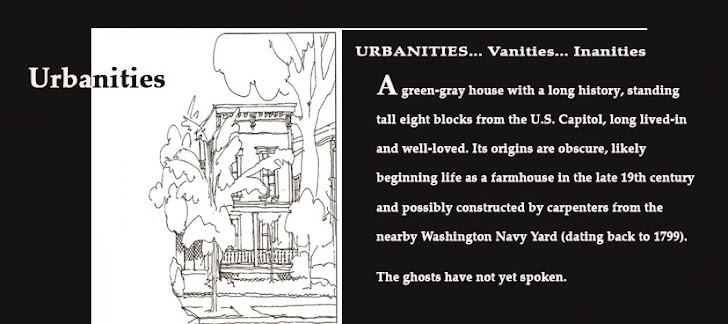Civility as it's commonly understood - behavior that goes beyond 'good manners'- is linked to civic life. Consider what is the meaning of 'citizen's responsibility.' Not just the matter of voting-as-privilege (why isn't voting mandatory in this country anyway?) but in everyday occasions that mostly go unnoticed because they are perceived as minor. The little courtesies that mean a lot, but which help in some way to bring people together, reminding them (us) of community and its value.
Yes, this is a theme that columnist David Brooks has taken up of late. I maintain I have been mulling the subject over far longer.
Consider those people who voluntarily stand to give a seat to a lame, pregnant or much older (obvious signs are obvious!) passenger on a bus or subway and do so with no ostentation, not even the expectation of 'thank you.' Those automobile drivers who stay watchful about the behavior - not only moves - of other drivers around them. Who give a smile, a nod, or a wave when they (we) get a signal to pull ahead in a line of traffic. Doesn't that help relieve the stress of congestion in a simple way - a quick connection between strangers who are at that moment in confined space, frustrated and powerless?
The effort to reach out, even silently, to an impatient driver in your path, or beside it, helps prevent an accident - possibly to your own car. Altruism, while stoic, also has its selfish side. Helps make you - the saintly one - so that much better a person, or make you feel a superior one. A spontaneous gesture is its own reward at times.
What about those double, maybe even triple, seat baby carriages taking up all that room on the sidewalk? What's protocol? Should the baby minder give way to the lone pedestrian in his/her path? At least show some sign of embarrassment that such a vehicle is something of an obstruction and offer a modest but humble acknowledgment of that fact? Stop the carriage long enough for the pedestrian to pass?
Then there are those infernal bikes blitzing along with the scooters that almost literally sail by the hapless two-footed creature minding his/her own business and hoping not to have to hop (yes) out of their way. What can be done to them except to try putting out a stick, a cane, or some immovable object that might visibly deter them? But that wouldn't be very civil, would it?
The subject on the table at a Mother's Day gathering I attended was civility, with a small c. I had just come from watching "Knock Down the House," a documentary about the efforts of four public-spirited female candidates gunning for U.S. House seats in the last election, only one of whom - the now famous "A.O.C" - won. The film rightly but not exclusively highlighted her campaign and how she took on the longtime Congressman in her district with seniority who never before had been challenged in a Democratic primary. (This was New York, where the primary winner is almost always assured of a seat.) The older white incumbent exhibited obvious bad manners: not showing up for a debate early on, rarely bestowing 'thanks' on a public he was courting (and counting on), or even seeming to listen to them. AOC on the hustings was impeccably generous with her time and emotions, holding nothing back in her ability to connect with people in their homes or on the street. She was social media savvy to be sure, but in-your-face contact was even more effective. Polls showed her opponent in the lead. So much for media polling.
These are indeed strange times concerning 'proper' usage of communication paths along the nearly unfathomable internet road. Who is to say what are the rules? To text or not to text, when and why, versus emails that can pile up by the hundreds every day without blocking devices that may or may not be effective. Does the texting person expect an imminent response just because he/she chose that method? Doesn't this put unreal pressure on someone to constantly monitor the phone for messages? What is sanity in the worldwide digital revolution taking place around us?
Plenty enough has been written to date about digital natives versus the so-called laggards or 'immigrants' trying to catch up. Technology as the enemy has suddenly taken hold.
Enough so that books (yes, print) are being published about the advantage of not paying heed to the fast tracking overwhelming stream of words coming at us every microsecond. The need to sometimes be silent, to turn off the machines, to let the mind re-create on its own. Not to put up a wall but to put one's own sanity in first place. Its a paradox for sure, but didn't the tortoise win over the hare in that fabled race?
Society is just now is tackling issues on Facebook about what constitutes privacy and who decides. If that isn't a question of manners, I don't know what is.
